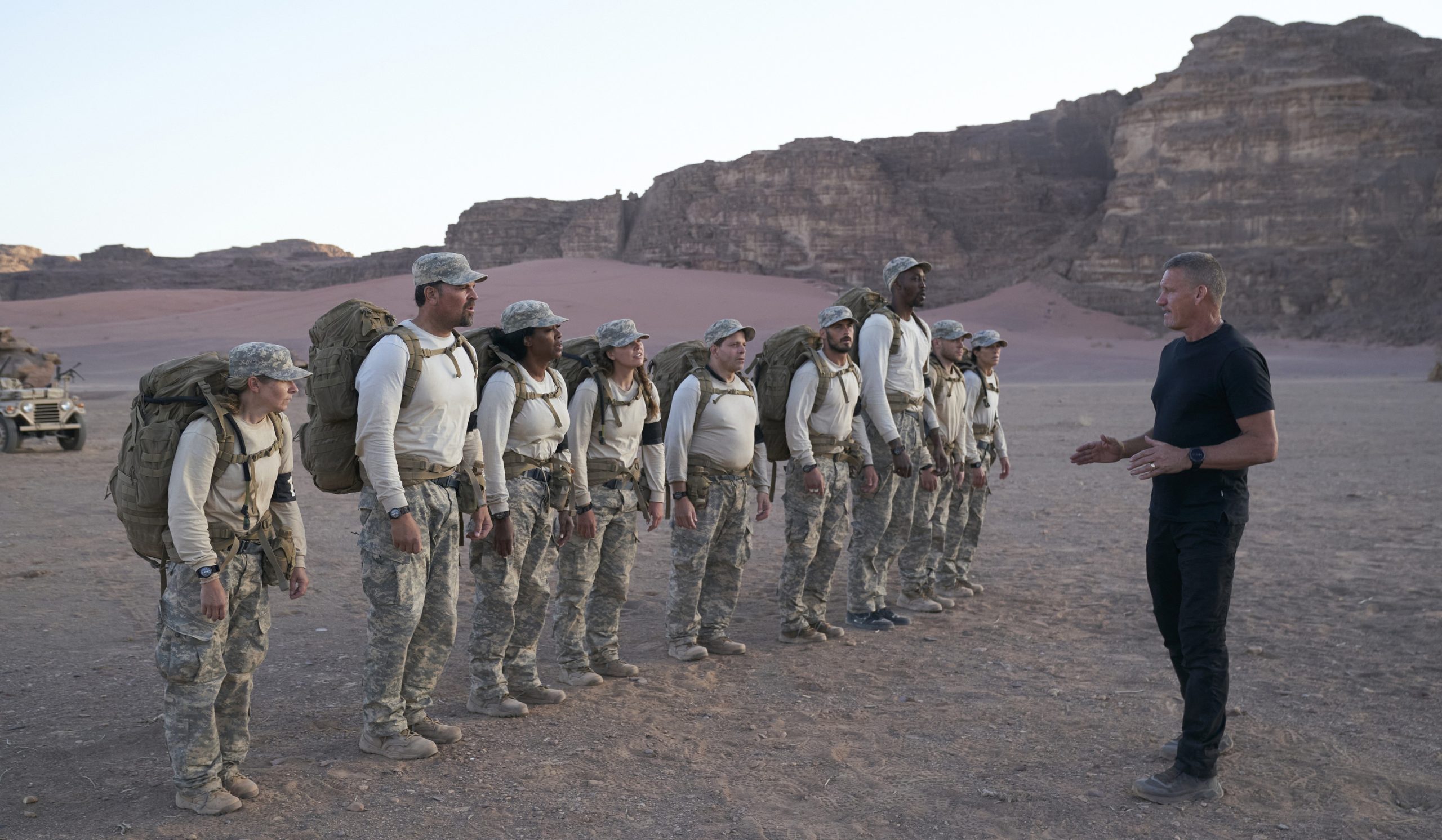Special Forces: The World's Toughest Test—Witness the Ultimate Challenge!
The world of special forces is a realm of unparalleled danger, exceptional skill, and unwavering dedication. These elite operatives are the crème de la crème of the military, tasked with conducting clandestine operations, high-risk missions, and covert activities that put their lives on the line every day. From the freezing tundras of Siberia to the scorching deserts of North Africa, special forces have become synonymous with bravery, resilience, and unrelenting pursuit of their objectives.
At the forefront of this elite group are the special forces units that undergo the toughest test of their lives – the Special Forces Qualification Course (SFQC). This grueling 24-week course is the defining moment for any aspiring special forces operator, pushing their physical and mental limits to the very edge. As the world watches, these operators are stripped of their civilian comforts and plunged into a world of unforgiving conditions, harsh environments, and merciless competition.
The Origins of the Special Forces Qualification Course
The Special Forces Qualification Course has its roots in the early days of the US Army Special Forces, which began in the 1950s. The original objective was to create a training program that would identify and develop the most capable and adaptable soldiers, capable of conducting unconventional warfare and guerrilla warfare. Since then, the course has undergone numerous revisions and updates, but its core purpose remains the same: to challenge and transform individuals into the ultimate special forces operators.
The Course Structure
The Special Forces Qualification Course is divided into several phases, each designed to test the recruits' skills, endurance, and mental toughness. These phases include:
- Phase I: Assessment and Training
- Initial screening and evaluation
- Basic skills training (e.g., first aid, navigation, and marksmanship)
- Physical fitness assessment and conditioning
- Phase II: Individual Training
- Skills-specific training (e.g., language, demolitions, and unconventional warfare)
- Combat skills training (e.g., hand-to-hand combat, pistol shooting, and rifle marksmanship)
- Survival, evasion, resistance, and escape (SERE) training
- Phase III: Team Training
- Team-building exercises and obstacle courses
- Patrol operations and small unit tactics
- Fireteam and squad-level training
- Phase IV: Assessment and Evaluation
- Final evaluation and assessment
- Boarding and preparing for deployment
The SFQC Training Methods
The Special Forces Qualification Course employs a range of innovative training methods to simulate real-world scenarios and push the recruits to their limits. These methods include:
- Survival, Evasion, Resistance, and Escape (SERE) training: Recruits learn to survive in hostile environments, evade capture, resist interrogation, and escape from confinement.
- Parachuting and airborne operations: Recruits undergo intense parachuting training to develop their skills in airborne operations and rapid deployment.
- Unconventional warfare and guerrilla warfare: Recruits learn tactics and techniques for conducting unconventional warfare, including ambushes, raids, and sabotage.
- Combat skills training: Recruits receive extensive training in combat skills, including hand-to-hand combat, pistol shooting, and rifle marksmanship.
The Physiological and Mental Demands
The Special Forces Qualification Course is designed to break the recruits' physical and mental barriers, pushing them to their limits. The course includes:
- Rigorous physical training: Recruits undergo intense physical conditioning, including obstacle courses, endurance tests, and strength training.
- Psychological evaluations: Recruits undergo psychological evaluations to assess their mental toughness, resilience, and motivation.
- Sleep deprivation and isolation: Recruits are subjected to sleep deprivation and isolation to simulate the stress and fatigue of real-world operations.
The Role of Mental Toughness
Mental toughness is a critical component of the Special Forces Qualification Course. Recruits must develop the mental resilience to cope with the physical and emotional demands of the course, as well as the uncertainty and risk of real-world operations. This includes:
- Developing a growth mindset: Recruits learn to adapt to new situations and challenges, and to view failures as opportunities for growth.
- Building emotional intelligence: Recruits develop emotional intelligence to manage stress, anxiety, and other emotions that can impact their performance.
- Cultivating a positive self-image: Recruits learn to develop a positive self-image and confidence, essential for overcoming adversity and persevering in the face of challenges.
The Importance of Teamwork and Leadership
Teamwork and leadership are essential components of the Special Forces Qualification Course. Recruits learn to work together as a cohesive unit, developing the skills and confidence to lead and follow in a fast-paced and dynamic environment. This includes:
- Developing leadership skills: Recruits learn to develop leadership skills, including decision-making, communication, and delegation.
- Building trust and cohesion: Recruits learn to build trust and cohesion within their teams, essential for effective communication and collaboration.
- Conducting joint operations: Recruits learn to conduct joint operations with other special forces units, developing the skills and knowledge to work effectively in a team environment.
The Role of Innovation and Creativity
Innovation and creativity are critical components of the Special Forces Qualification Course. Recruits learn to think outside the box and develop novel solutions to complex problems, essential for overcoming the challenges of real-world operations. This includes:
- Developing problem-solving skills: Recruits learn to develop problem-solving skills, including analysis, evaluation, and decision-making.
- Cultivating a culture of innovation: Recruits learn to develop a culture of innovation, encouraging creativity and experimentation.
- Conducting simulations and exercises: Recruits participate in simulations and exercises to develop their skills
Uday Chopra
The Owners Kpkuang
Keean Johnson
Article Recommendations
- Karlanenio Case Pos
- Mamitha Baiju
- Karlanenio Crime Pos
- Who Is H L Ne Joy Partner
- Aiden Allen Rawls
- Orlando Brown
- Lyra Crow Fans
- Markavis Wife
- Prichard Colon
- Alina Habba Net Worth



